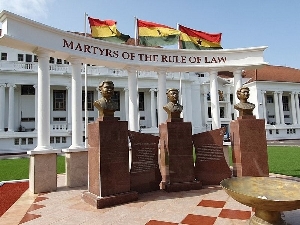Ghana’s judicial independence has seen a steep decline over the past seven years, with the 2024 Mo Ibrahim Index on African Governance reporting a drop from 100% to 50% in judicial autonomy.
This significant reduction casts a concerning light on Ghana’s governance outlook, with judicial independence—a core pillar of democratic governance—appearing weakened.
In a recent youth engagement event, Vice President and New Patriotic Party (NPP) presidential candidate, Dr. Mahamudu Bawumia, celebrated Ghana’s ranking as the seventh-best-governed country in Africa, according to the Mo Ibrahim Foundation.
However, a closer look at the index data reveals a troubling trend in the judiciary’s autonomy.
Between 2014 and 2017, Ghana’s judiciary enjoyed a score of 100% autonomy, reflecting a high degree of independence in interpreting laws without interference.
Beginning in 2018, however, this score dropped to 50% and has remained at that level through 2023.
The Mo Ibrahim Index defines judicial autonomy as the ability of the judiciary to operate free from political pressure or influence from other branches of government.
The index’s findings have drawn criticism from civil society groups, who argue that recent appointments of political figures to judicial positions and the remanding of protesters suggest potential influences on the judiciary’s impartiality.
Analysts warn that this decline in judicial independence underscores an urgent need for safeguards to protect the judiciary from external pressures.











